As a pro pickleball player and a physical therapist, I want to see you on the court, not in my clinic. Therefore, I will outline my favorite tips, which I use personally and with my patients to maintain strength and decrease the likelihood of injury. As an athlete, muscles are essential to perform; they support our joints to promote optimal function while minimizing stress. But you don’t have to be a pro athlete to reap the benefits of a fun and social sport like pickleball! Whether you’re a pickleball prodigy or simply enjoy a game or two on the weekends at your local court, here are three common pickleball injuries to be on the lookout for:
- Knee pain
- Low back pain
- Tennis elbow
Avoiding Knee Pain and Injuries
Pickleball requires hitting low shots in a flexed position for long periods of time, which creates stress on our knees. We need strength in our lower legs and our hips/glutes to help alleviate compressive forces (gravity, body weight) on our knees.
Strengthening hip and gluteal muscles can help minimize the likelihood of knee injuries. Strengthen your hips today and your knees will thank you when you play.
My favorite hip exercise is resisted band walking. Place a resistance band around your legs above your knees or your feet. Keep tension on the band, avoid rocking, and sidestep while placing your weight on your heels. Aim for one minute and increase the time as you get stronger. Keeping a band in your living room or a convenient location in your home will encourage you to make this a part of your daily routine! Also, be sure to put a band in your pickleball bag to use prior to playing.

Low Back Pain
In pickleball our feet are fixed at the kitchen line while we attempt to hit a ball out of the air. This reaching forward motion in a flexed position with planted feet puts stress on our lower back. To perform this movement safely, it is important to have strong abdominals and glutes. The core muscles provide a strong base for the spine. Tight hamstrings also create undue stress on the lower back. If you’re having low back pain during or after a match, you could likely benefit from increasing strength of core muscles. Focus on strengthening abdominals and glutes with a few of my favorites: the plank, side plank, standard bridge, and glute bridge (legs up on chair or exercise ball).
Plank
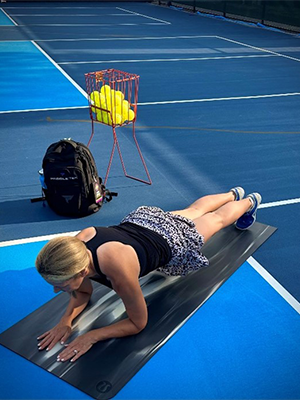
Side Plank
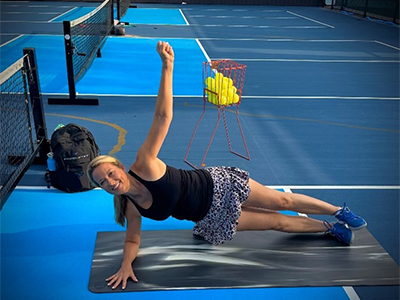
Bridge
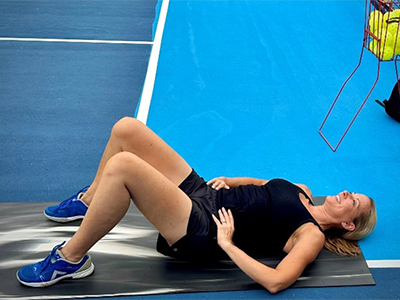
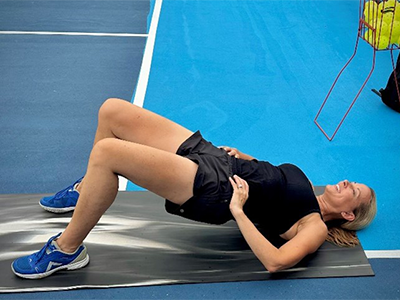
Tennis Elbow (Lateral Epicondylitis)
In my experience, I usually find that players who do not come from a racquet sports background develop this condition – primarily due to overuse. The gripping muscles attach to the outer bone at the elbow and can become irritated and inflamed with overuse. Overuse is the leading cause of most pickleball injuries. People play multiple days in a row without rest days or do not do the work off the court to cross-train and ensure they have the appropriate strength and flexibility to support joints.
In addition to strength in our forearm/gripping muscles, a strong rotator cuff is important to provide stability to the shoulder and perform the stroke with proper mechanics. Try this move to target your rotator cuff.
External Rotation with Scapular Retraction
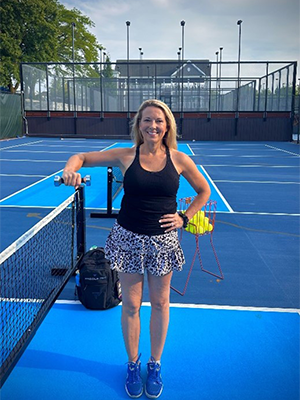
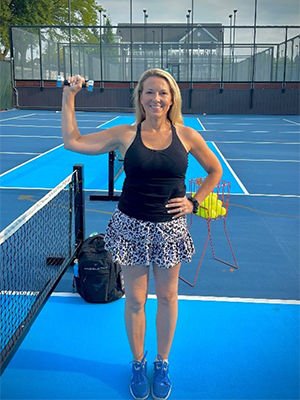
So, Prevention is Best, But What Do You Do If You’re Injured?
Rest! It’s free, anyone can do it, and your body will thank you. Ice and braces or sleeves can help. Physical or occupational therapy is also beneficial for properly evaluating the injury, identifying deficits, and designing a treatment plan specific to you.
Start now! Prioritize strength! Being stronger makes daily tasks easier and greatly increases your chances of spending time on the court, not in a doctor’s office or PT/OT clinic. Train your muscles today and your joints will thank you when you play.
For more tips or to connect with an expert who can assess your aches, pains, or injuries, connect with an Athletico team near you to schedule a free assessment. Free assessments are available in-clinic and virtually through our telehealth platform.
*Per federal guidelines, beneficiaries of plans such as Medicare, Medicaid, Tricare, VHA and other federally funded plans are not eligible for free assessments.
The Athletico blog is an educational resource written by Athletico employees. Athletico bloggers are licensed professionals who abide by the code of ethics outlined by their respective professional associations. The content published in blog posts represents the opinion of the individual author based on their expertise and experience. The content provided in this blog is for informational purposes only, does not constitute medical advice and should not be relied on for making personal health decisions.

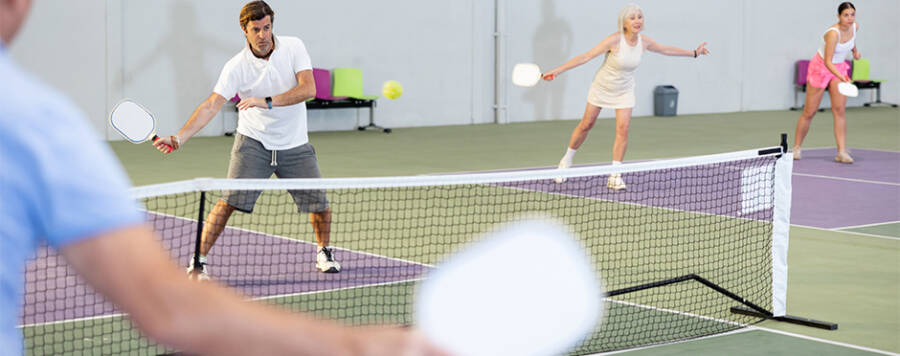 width="900"
height="356"
>
width="900"
height="356"
>

2 Comments
Rosie Smith
Great information and tips to prevent injuries. The pictures showing how to do the exercises is very helpful.
Very informative
RACHEL
Great tips! ✨